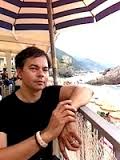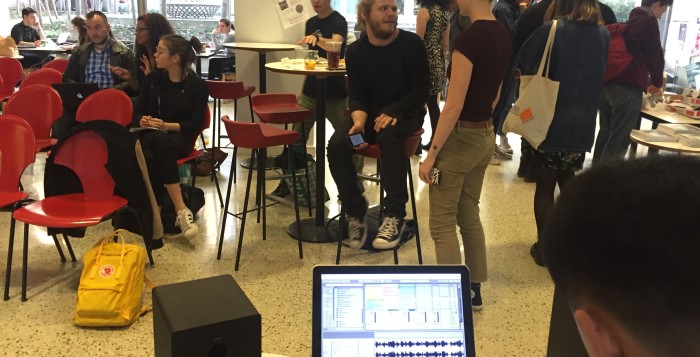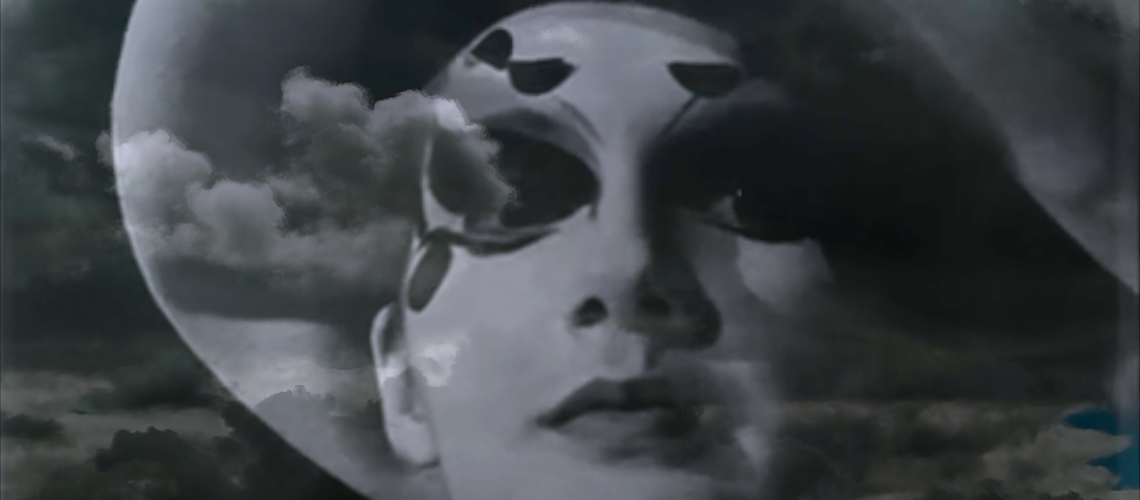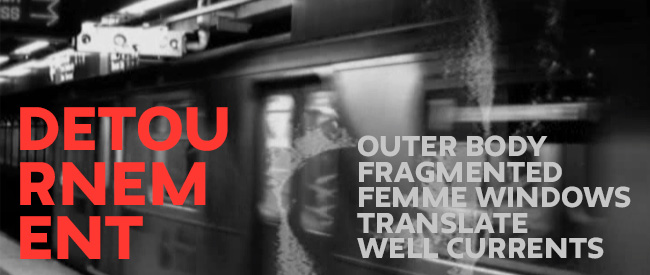
I’ve been pretty much in denial about the death of my friend Robin ten days ago. But the reality keeps leaking into my heart... Read More

Artistic Director Alexandra Chasin, Associate Professor of Literary Studies at Lang College, The New School, created Writing On It All, a participatory writing project open... Read More

Playwriting courses are offered through The Arts and can be combined with any major or minor program in Literary Studies. In the course, students... Read More

From Alice Vincent at the Telegraph (UK): “Thanks to an idea from writer and educator Candice Benbow, a free syllabus of hundreds of references to... Read More

[The Department of Literary Studies will be hosting a conference this fall on Wide Sargasso Sea, and to celebrate we are giving away five... Read More

We are thrilled to see coverage of the release of Lang’s student-run literary magazine, Eleven and a Half, in The New School Free Press,... Read More

by Assistant Professor Julie Beth Napolin Monday, May 9 and Wednesday, May 11 12pm-1:35pm 66 W. 12th room 517 This semester students in Ben... Read More

by Assistant Professor Julie Beth Napolin Thursday, May 4 Two screenings: 7:30pm and 10pm. $5 Please join the students and instructors of “Spectacle Theater:... Read More
by Assistant Professor Julie Beth Napolin
Thursday, May 4
Two screenings: 7:30pm and 10pm. $5
Please join the students and instructors of “Spectacle Theater: Image, Sound, Text” for their final screenings and performances at Spectacle Theater, a collectively owned and operated micro-cinema (124 S. 3rd St., Brooklyn).
Multidisciplinary artists from Eugene Lang College have come together to make some sweet dissonance between image, sound, and text. Having spent the semester learning and theorizing the expanses and limitations unique to artistic collaboration, six groups take up their chosen mediums. Stolen and live footage, original and sampled sound, archived microfilms, and live performance are collaged together in dynamic shorts that aim to dispute and reboot historicized modes of seeing, hearing, and analysis in the cinematic surround. Theatrically toppling storied tropes, shifting salient subjectivities, uncovering and rediscovering the assemblage of quotidian experiences in private/ public spaces, these six films and performances are imaginative and galvanizing presentations that update and augment monumental theoretical texts that have come to shape audiovisual perception.
As a bonus for the 10pm show, there will be a live performance at 9pm. Meridians (Julie Beth Napolin) and Lang student Eric Bayless-Hall will produce a live, improvised score for an edit of Antonioni’s Red Desert (edited by C. Spencer Yeh). Their collaboration explores the aesthetics of appearance and disappearance, working through the power of sound and image to appear out of and return to nothingness. The performance is influenced by Stephen Heath’s seminal essay “Narrative Space” in Questions of Cinema as well as the writings of Hannah Arendt on the politics of the public as supported by a space of appearance.
For more information about the individual pieces and tickets (which may be purchased in advance or at the door), please go to the Spectacle Theater website. Seating is very limited.
Present at all screenings will be Dr. Julie Beth Napolin, Assistant Professor at Eugene Lang, Lisa Brenner, Seminar Fellow, and Shiva Addanki, Research Assistant, and co-teacher C. Spencer Yeh, artist and volunteer at Spectacle Theater..
This project is a collaboration with the Civic Liberal Arts Program at Eugene Lang College, The New School for Liberal Arts.
I’ve been pretty much in denial about the death of my friend Robin ten days ago. But the reality keeps leaking into my heart and bones with a terrible chill. (Roland Barthes captures this weird temporality of grief very well in his Mourning Diary.) I had lunch with him just over two weeks ago. We ate together on a rickety metal table in Union Square, and talked about his upcoming promotion review (which was scandalously overdue), amongst other things. He didn’t look well, but maintained all the essential qualities that made him unique and universally loved. His laconic sense of humor. His quiet, dry dignity. His bohemian overcoat. His shrewd observations about art and life. And his caring soul.
Soon after I met Robin, just over a decade ago, he told me he has a ticking time bomb inside him; referring to the congenital heart-defect which robbed us of his presence. Of course, we all have such a dormant form of combustion in our bodies, somewhere. But it must have been a nightmare to live with this shadow hovering over him every moment. And yet he bore this tangible and terrible knowledge, like all the trials of living in New York and working at the New School, with good humor and grace. Like a good Nietzschean, he refused to see the world through the lenses of resentment. (Given some of the professional indignities he suffered over the years, I was always impressed that he didn’t seem to suffer from excess bitterness.) It is a very cheesy thing to say, but it is supremely ironic that Robin died of heart failure, given he had more heart than anyone I’ve ever met.
Robin and I spent many nights eating, drinking, and talking about literature. He had little interest in Theory, but loved ideas. He was one of the most erudite people I had the pleasure of knowing; and his deep knowledge of Steiner, Auerbach, Frye, etc., always left me feeling cravenly trendy. We loved many of the same authors, but inhabited their books very differently. He never taught the same course twice, because he always wanted the students to learn new things (since many students followed him from class to class). I read his unpublished novel, which was, among other things, a love letter to his own undergraduate days at Bard. Robin was very much a child of the post-punk era, and we also talked a lot about music. He was both a Romantic (early 19th century) and New Romantic (early 1980s). He made some rather lovely, dreamy pop songs, but only played them live once or twice. He missed the era of his youth, where heterosexual masculinity had far more expressive outlets than today (what we might now call “queer,” though that’s not quite right). In the end, Robin published his literary criticism more than his fiction or poems, because, as he said to me during our last conversation: “The thing is, one hates the novels one has written far more than the monographs.” I felt his frustration with his own muse, here, and the sense that time was running out – not giving him a chance to get things right. (Since he was a perfectionist, when it came to form.)
Robin was a beautiful soul and a handsome man. Slightly vain perhaps, but in a healthy sense, of admiring beauty, even if it happens to have accidentally lodged in one’s own face or torso. He admired and enjoyed the sensuality of women (either in actuality or in potentia), but not in any grasping, overt, or unpleasant way. He was an old-fashioned amoralist, in the best sense, and should really have been a young professor in Weimar or Paris between the Wars. I am happy that he found his true love in the last years of his life; even as I am shattered that this happiness is now struck by tragedy and unthinkable loss.
One of the last things Robin did for Lang College was lead a small group of students in the Dean’s Honor’s Symposium. He spent many, many hours workshopping ideas with these budding young minds, before interviewing them about aesthetic experimentation and poetic effect in front of an audience of other students and faculty. Robin’s dedication to the transmission of knowledge, and a sensibility founded on commitment itself, was a constant pulse in his life. Robin never phoned anything in; even as his idiosyncratic personality made many misread him as a cynic. He was anything but; even as he harbored a healthy skepticism of the entrenched foolishness of institutions and human beings. His sense of humor was so deadpan that many people missed it. And this is what I miss right now, along with the rest of him. My hand reaches for my phone to call him, because he is the first person I want to talk about my grief with. I want to talk to him because he would be wise, calming, understanding, and uplifting. He was a remarkably sympathetic and generous companion.
After watching the video of Robin’s discussion with these students, a colleague wrote to me, still disbelieving that he had passed away. Her two brief and simple observations capture Robin perfectly. “He talked SO slow,” she wrote. “And he cared SO MUCH.”
This was originally published in May 2016
Professor Dominic Pettman teaches at The New School for Social Research.
Professor Robin Mookerjee taught in the Lang Literature and Writing departments.
Read the New York Times obituary here.